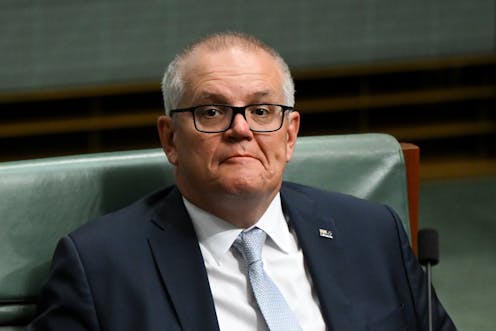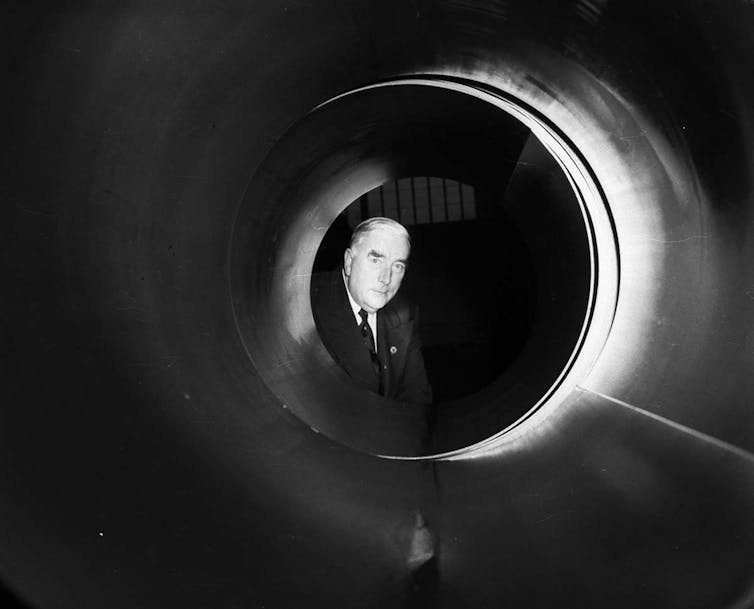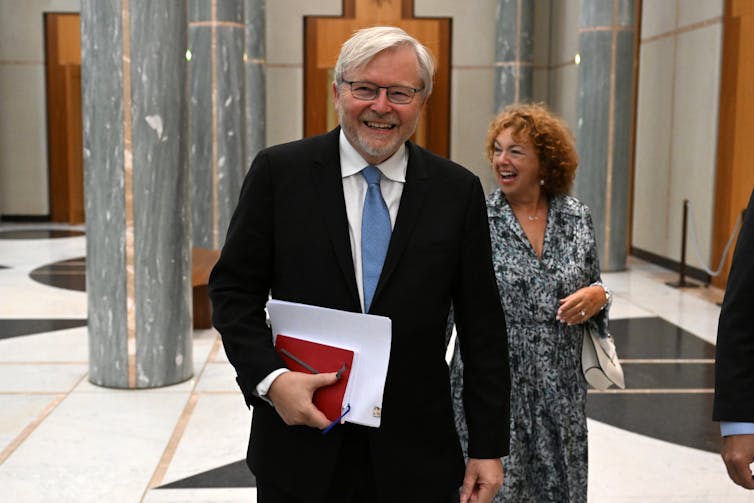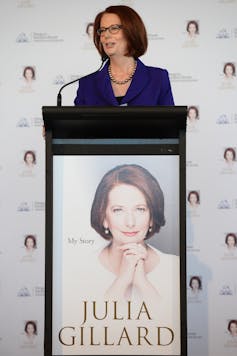
Few Australians are losing sleep over how Scott Morrison is going to earn a crust after politics. Few outside the federal Coalition, at any rate. His continuing presence on the opposition backbench serves as a distraction from the present and reminder of the past. Unfortunately, that past keeps intruding on the present – most recently, in the form of the robodebt royal commission report. There is no reason to believe relief is in sight.
Morrison’s prime ministership was a landmark in one respect that is rarely noticed. Leaving aside the independently wealthy Malcolm Turnbull, Morrison is the first prime minister originally elected to parliament under the post-2004 superannuation arrangements for politicians. These were the result of a decision made by the Howard government, as a defensive measure against an insurgent Labor Party under Mark Latham, to end the gold-plated scheme that had politicians getting a pension for life once they had been in parliament for eight years, with further generous benefits for ministers.
Of course, former prime ministers receive many other goodies, such as office facilities and free travel, but that does not earn them a living. Morrison is just 55, with a young family. He does not seem short of a quid, but it is easy to see why he might be reluctant to surrender his parliamentary salary without having something else lined up.
He has been shopping himself around and seems to imagine a future on the lecture circuit. That is potentially a nice little earner for an ex-leader, as Tony Blair and Bill Clinton have shown. But as US vice-presidential candidate Senator Lloyd Bentsen might have put it if he were still around: “Scott, you’re no Bill Clinton”. The opportunities for a former Australian prime minister to play wise elder statesman seem unpromising.
Read more: 'He played his ukulele as the ship went down': Frank Bongiorno on the political year that was
Bill Clinton, like all former US presidents, remains “Mr President”, but it is different under a parliamentary system. There is no obvious role for a former Australian prime minister to play. Nor is there an obvious career path for them to take to keep themselves in the manner that they presumably see as befitting their status. If you are wealthy, like Turnbull or Kevin Rudd, there is nothing to worry about. But matters are more complicated for others. Even Robert Menzies relied on benefactors to help him acquire a home in Melbourne after spending 16 years in the Lodge.
So, what have our ex-prime ministers done with their post-prime ministerial lives? Five never had to face the dilemma. Joseph Lyons and John Curtin died in office, and Harold Holt disappeared at sea. Ben Chifley died as opposition leader in 1951, after losing an election to Menzies in December 1949. Alfred Deakin tragically lost his mind.

Edmund Barton, our first, went to the High Court, but he is unique in following that course. Several have assumed diplomatic appointments. High commissioner in London was popular in the early decades of last century, and a natural progression given that prime ministers, not external affairs or foreign ministers, had primary responsibility for relations with the United Kingdom. George Reid, Andrew Fisher, Joseph Cook and Stanley Melbourne Bruce all took on this role. Reid subsequently entered the House of Commons for the Conservative Party for a brief period before his death. Bruce distinguished himself as high commissioner for over a decade, taking in the latter years of the Depression and the second world war before he went to the House of Lords as Viscount Bruce of Melbourne.
The practice of sending ex-prime ministers on major diplomatic postings fell into disuse. The Hawke government appointed Gough Whitlam to Paris as ambassador to UNESCO, but Rudd’s recent appointment to Washington is otherwise a departure from patterns established since the second world war.
Efforts to gain a prestigious international role have usually produced disappointment. Malcolm Fraser failed in a bid to become secretary-general of the Commonwealth, but he did serve on the eminent persons group trying to end apartheid in South Africa and chaired the international relief agency, CARE Australia. The even more exalted role of secretary-general of the United Nations eluded Rudd.

Others have tried business. Bob Hawke’s recent biographer, Troy Bramston, reports that he “made a lot of money in the 1990s and 2000s”, with China a focus. Hawke had excellent business connections stretching back to his time at the ACTU, and made the most of them. In general, his business activities, combined with his criticisms of his successor Paul Keating, did little to restore his reputation. Keating himself pursued business opportunities, taking an interest in Sydney planning issues, and has now emerged as the harshest public critic of AUKUS.
Most write memoirs, which can be lucrative. Menzies, Whitlam, Hawke, John Howard, Julia Gillard and Turnbull did well with sales; Rudd less so. Fraser also wrote books as he became more critical of the Liberal Party he once led. Howard and Gillard have continued to write, while Gillard was a founder and remains chair of the Global Institute for Women’s Leadership, established at King’s College London and now also based at the Australian National University (ANU). She has interested herself in girls’ education. Whitlam was a visiting fellow at the ANU for a time after politics.

The problem for ex-prime ministers today is that the dynamics of political careers have changed. Politics was once essentially a profession; now, it is more commonly a stage in a career and those leaving the job are often only in their fifties.
Billy Hughes was for a time Australia’s longest-serving prime minister, in the role from late 1915 through to early 1923. But these were but a few years in a political career that stretched from his election to the New South Wales parliament as an early Labor member in 1894, to serving in the House of Representatives with several parties from 1901 through to his death in 1952. Another Billy, McMahon, continued in parliament for almost decade after his defeat at the 1972 election, offering commentary on his own side of politics that was rarely cherished.
Ironically, the greatest harm McMahon did to his party after 1972 was an ill-timed resignation that saw his seat of Lowe go to Labor. But when prime ministers deposed by their own side have stayed on – Hughes, John Gorton, Rudd and Tony Abbott – they can do their successors a little or a lot of damage.
Gorton appeared in a whisky ad, and Whitlam advertised pasta sauce and telephones. Morrison made his career in marketing and gained a public profile over the controversial “Where the bloody hell are you?” Australian tourism ad.
A master spruiker, perhaps the answer to Morrison’s dilemma lies under his nose.
Frank Bongiorno does not work for, consult, own shares in or receive funding from any company or organisation that would benefit from this article, and has disclosed no relevant affiliations beyond their academic appointment.
This article was originally published on The Conversation. Read the original article.







